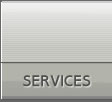PAYROLL TAX
What is pay-roll tax?
Pay-roll tax is:
- a state tax;
- payable at the rate of 5.25 per cent (rate effective from 1 July 2003);
- calculated on wages paid by an employer to its employees;
- charged by all Australian States and Territories - each State has its own legislation, with differing provisions and exemption levels; and
- collected and administered in Victoria by the SRO in accordance with the Pay-roll Tax Act 1971.
When is an employer liable for Victorian pay-roll tax?
An employer that employs in Victoria must register for and pay pay-roll tax when:
- its total Australian wages exceed the Victorian general exemption level of $45,833 a month or $550,000 over the full financial year; and/or
- it is grouped with other businesses and the combined Australian wages of the group exceed the Victorian general exemption level.
When is pay-roll tax paid?
- Pay-roll tax is payable monthly, by the seventh day of the month following the month in which an employer's wages have exceeded the Victorian general exemption level.
- · If the estimated tax payable by an employer is relatively low, approval may be given to pay annually.
Are there any exemptions from pay-roll tax?
Wages paid to persons engaged exclusively in the work of the following organisations are exempt:
- religious institutions;
- public hospitals;
- non-profit hospitals;
- non-profit, non-government schools providing education at or below secondary level;
- municipalities (with the exception of wages paid to employees engaged in certain prescribed activities);
- public benevolent institutions;
- charitable bodies (other than schools, educational institutions or instrumentalities of the State); and
- It is important to note that, generally, only wages paid to persons performing services that relate directly to the objects of the body are exempt. Wages paid to persons engaged in commercial or business activities are not exempt, even if the proceeds of those activities are used to further the objects of the body.
What payments are included as wages?
The definition of wages is very broad and includes all of the following:
- wages;
- salaries;
- allowances;
- commissions;
- bonuses;
- employer (pre-tax) superannuation contributions and includes:
- superannuation guarantee payments, and
- salary sacrifice contributions
- fringe benefits, within the meaning of the Fringe Benefits Tax Assessment Act 1986 (grossed-up value);
- payments to some contractors;
- payments to employment agencies (up to 31 December 2004) arising from employment agency contracts;
- remuneration paid by a company to or in relation to company directors; and
- eligible termination payments and accrued leave.
What is not taxable?
Some payments are not subject to pay-roll tax. These include:
- Up to 31 December 2003, payments to apprentices and trainees employed under a training agreement made on or before 6 May 2003 (subject to certain conditions being met);
- compensation payments to injured workers (for example, WorkCover and TAC payments) but not amounts paid in excess of the amounts prescribed as compensation (for example, make-up pay is taxable);
- the income tax free portion of bona fide redundancy or early retirement payment; and
- maternity or adoption leave if paid in addition to employees' normal leave entitlements.
Although allowances are generally fully taxable, travelling, accommodation and living away from home allowances may be fully or partially exempt in some circumstances





